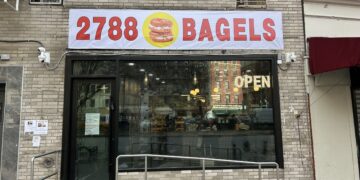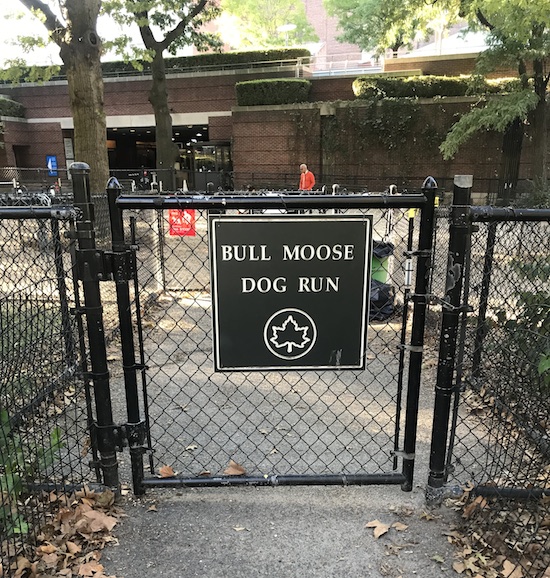By Michael McDowell
Seven candidates for public advocate qualified for a televised debate on Wednesday, based on fundraising and endorsement standards established by the city’s campaign finance board. These candidates were (in alphabetical order): Assemblyman Michael Blake, City Councilman Rafael Espinal, Assemblyman Ron Kim, activist Nomiki Konst, former New York City Council Speaker Melissa Mark-Viverito, attorney Dawn Smalls, and City Councilman Jumaane Williams.
A special election to fill the public advocate job, which is temporarily held by current Speaker of the City Council Corey Johnson following Letitia James’ victory in her campaign for New York State Attorney General, will be held next week on Tuesday, February 26.
All of these candidates, with the exception of Kim, appeared at a forum held at the Goddard Riverside Community Center in December, which was hosted by Assemblywoman Linda Rosenthal.
In the months since, it would seem Williams has become the candidate to beat, at least if one were to use as a measure the number of attacks opponents aimed in his direction, in a debate that was generally high on rhetoric and low on specifics, despite the careful moderation of Errol Louis, political anchor of Spectrum News NY1.
With an eye toward the Amazon imbroglio, do candidates have an alternative method that the city should follow to try and attract billions of dollars and thousands of jobs to New York?
“We should pass the nondisclosure act, and hopefully as public advocate [this is something I can push], to make sure the mayor can never sign a nondisclosure agreement again,” said Williams, who stood by his initial support for engaging with Amazon.
A question from co-moderator Laura Nahmias, of Politico New York, on homelessness and homeless shelters, provided a clear opening for discussion of the city’s housing crisis.
When it comes to homelessness, “everyone has a responsibility: the Upper East Side cannot be immune to it, the Upper West Side cannot be immune to it,” said Mark-Viverito.
She continued.
“We [need] aggressive enforcement to ensure that units that are being taken out of rent regulation are being brought back into rent regulation, we need to keep people in their homes. These measures, [as well as] changing our rent regulation laws, strengthening enforcement, [and] making sure people have access to legal resources, these are all solutions.”
According to Mark-Viverito, evictions are down 37% citywide, as a result of a Right to Counsel law, designed to ensure tenants taken to housing court are afforded representation, which she supported.
“We should make sure there are actual protections so [tenants] can stay in their homes in the first place. Maybe we should take away tax credits for landlords that are not implementing rent stabilization,” said Blake. “Instead of putting money into hotels, put money into someone keeping a home in the first place,” he said.
If affordable housing is planned for a neighborhood with units priced for families slightly above the income level already in that area, should that fact alone be grounds to halt or readjust that particular project? In other words, do candidates support mixed-income housing?
“I think that we need to rethink this entire conversation: it needs to be less about give-outs to developers…and [more about] building and investing in true affordable housing and protecting our tenants,” said Konst.
“The vacancy rate for apartments that are $2,500 and above [in New York] exceeds the national average, but for apartments that are $1,500 and below, the vacancy rate is less than 1.5 percent. So that figure alone tells you that we need more units on the market that are affordable to lower income families. I would push for and accept a development that included those deeply affordable units in that lower range [over] more housing in the higher range, because otherwise you’re building in gentrification, because nobody that currently lives in those neighborhoods can afford to live there,” said Smalls.
Other candidates also had substantive answers to this question. According to Williams, current elected officials are responsible for what many would deem an affordable housing crisis.
“The people who are in this audience and the people who are [watching] know that we have failed them when it comes to affordable housing. The first question is, affordable to [whom]? … I’m calling for a moratorium on rezonings, and I’m also calling for a racial impact study, to be done before any rezoning is completed, [which we should add] to the environmental impact study.”
Blake highlighted alleged abuse of J-51 tax abatements.
“When it comes to rent stabilization, we should continue the work of what’s happening with the Housing Rights Initiative…[we should] take away J-51 tax credits from any landlord that’s not implementing rent stabilization…[and] there should be a moratorium on Third Party Transfers,” he said, referring to a distinct Department of Housing Preservation and Development (HPD) program.
Blake continued.
“When we talk about housing, we have to talk about public housing. Why is it easy to get unleaded gas, but you can’t have a lead-free apartment? Something has to change when we think about our vision when it comes to housing,” he said, to applause.
What about Airbnb? In January, a federal judge blocked a city effort to regulate Airbnb, and earlier this week, the city demanded the company disclose data on the apartments available to rent through its platform.
“We have to find the middle ground between the big corporate actors that are taking housing stock and using it en masse, [who] are really affecting the affordable housing stock in the city, versus the single homeowner that may have a brownstone or have an extra room that wants to make some extra dollars. We have to find that balance, between the two, and not vilify a company that is providing a valuable service,” responded Smalls.
A cross-examination round featured a number of personal attacks, including a particularly fiery exchange between Konst and Wiliams.
Several areas of agreement surfaced in the next round: all of the candidates said they would work to reduce tuition at CUNY, if elected, with several stating tuition at the institution should be free. All of the candidates said they support legalizing marijuana.
A common foe? The mayor, who, if elected, a few aspiring public advocates appear prepared to openly oppose. What do candidates think of his rumored presidential ambitions?
“I think he’s completely delusional. Our schools are failing, our subways are crumbling, we lack affordable housing. He should apologize to New York City first, for the last six-and-a-half years,” said Kim.
“[De Blasio] is not qualified to run for president and should not be running for president. But this is a clear indication of why you have to think about who you elect to be public advocate,” said Blake. “The public advocate is first in line to the mayor to step up if a vacancy occurs…who will be ready on day one?”
Co-moderator Bobby Cuza, political reporter at NY1, asked candidates if they supported legislation to grant undocumented immigrants driver’s licenses. Additionally, would they support the right of undocumented immigrants to vote?
These proposals received near unanimous support, although Smalls said she could not offer a position on voting rights for undocumented immigrants as she had not sufficiently studied the issue.
Mark-Viverito elucidated a nuance to such efforts, which were under consideration during her time as Speaker.
“We were going to move [state citizenship] forward, but when Trump came into office, the advocates asked us to reconsider at that time…the issue [was] with the data that was being collected…We [have found] the right protocol for that, [for] destroying that data, [and] now there is a protocol in place that we can move forward,” she explained.
As the auditorium at Borough of Manhattan Community College emptied, the Rag spoke with several attendees. What did they think of the candidates, following this second debate? A few, who wished to remain anonymous, said they were impressed by Kim and Smalls. Others preferred Williams, the experience of Mark-Viverito, or the feistiness of Konst.
“I think I’m still leaning strong towards Jumaane,” said Jayshawn Lee, a student. “There are a couple other candidates that are really strong as well, like Dawn Smalls and Michael Blake,” he considered. “I’m definitely glad I came out tonight.”










Can someone explain what exactly a “public advocate” does or why no other cities have public advocates?
Also, can anyone name one thing a public advocate has ever accomplished?
It seems like whoever wins will simply be drawing a fat paycheck for doing absolutely nothing. There are better ways the city can spend taxpayer money.
According to Wikipedia, as NYC’s first Public Advocate, Mark Green first proposed the 311 help line later implemented by Mayor Bloomberg. He barred stores from charging women more than men for the same services and barred companies from firing employees merely because they were the victims of domestic violence. He started the city’s first website, NYC.gov. And he filed and won a lawsuit that forced information about racial profiling by the NYPD while Rudy Giuliani was mayor to be made public.
Can the WSR author elaborate more on the “near unaminous support” for undocumented immigrant drivers licenses and voting rights, candidate by candidate? Both of these proposals seem absurd to me. And they are controlled at the state/national level, entirely out of the purview of a city official. So why is that even discussed at a public advocate debate? There are so many other issues that NYC must prioritize.
People, take a look at Ben Yee, running a totally people powered campaign. No big money from anyone.
Rather refreshing. A very bright and committed candidate.
public advocates? Why do we need one?
Pure nonsense and a total waste of time and money.
And they don’t know what they’re doing or what they’re talking about, totally ridiculous.
No votes from here.
Does this mean that no one from all of West 80th Street is voting tomorrow? That BillyNYC is claiming to speak for everyone on the block regarding all political issues? I only speak for myself so I guess my words aren’t as important as Billy’s. 🙂
He speaks for absolutely nobody on West 80th St. but himself, which is fine but true.
Thanks. Exactly what I assumed. But it certainly seems improper to use the name of the Block Association in the way that he does.
It certainly does, Bob, it certainly does. I think we’re sadly all kind of used to the bizarre charade by now.
So curious. Where did Danny O’Donnell disappear to? Did he actually fail to meet the minimum standards required to participate? If so, I find that so weird. Are his constituents that disappointed in him?
Danny is on the ballot and running for Public Advocate. As I understand it candidates had to raise and spend a certain amount by a few days before the second debate to participate. A constituent told me he likes Danny so much he hopes he’ll stay his Assemblymember, but he’d make a great Public Advocate. Whoever you support, be sure to plan to VOTE!
For what it is worth, I attend a fair amount of town halls, housing conferences & community board meetings and the only PA candidate I have seen at these events is J. Williams.